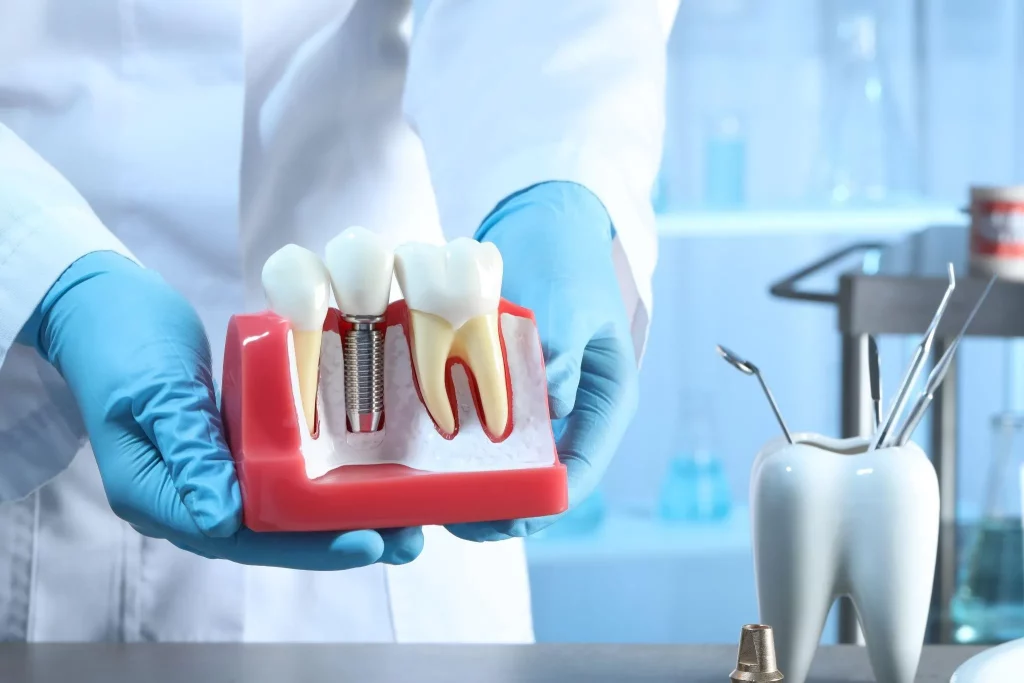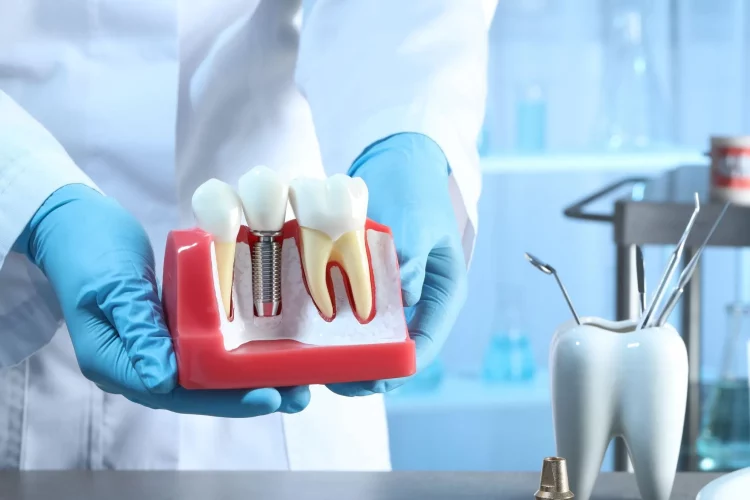Introduction
Good oral health is not solely dependent on brushing and flossing; it is also significantly influenced by what we consume. Just as our bodies require a variety of nutrients to maintain overall health, our teeth and gums also need a specific array of vitamins and minerals to remain strong and disease-free. Diet plays an essential role in supporting not only general health but also the integrity of our oral structures. Maintaining healthy teeth and gums involves ensuring that your body is adequately supplied with essential vitamins, minerals, and other nutrients.
In this essay, we will explore the most important vitamins and nutrients for oral health, the roles they play, and how they can be integrated into a balanced diet. We will also examine how deficiencies in these nutrients can lead to various oral health problems, including cavities, gum disease, and enamel erosion. Understanding these essential components can help individuals make informed decisions about their diet and improve their overall oral health.
1. The Role of Nutrition in Oral Health
Nutrition and oral health are deeply intertwined. What you eat not only affects the condition of your teeth and gums but can also have long-term impacts on the health of your mouth. Proper nutrition strengthens teeth, prevents gum disease, helps maintain tooth enamel, and accelerates the healing of oral wounds. It also improves the immune system, which is vital for defending the mouth against harmful bacteria and infections.
A balanced diet that includes vitamins, minerals, antioxidants, and other vital nutrients is essential for promoting optimal oral health. Regular consumption of these nutrients can prevent or mitigate a variety of oral health issues, such as dental decay, gum disease, and bad breath, and can help preserve your natural teeth for a lifetime.
2. Essential Vitamins for Oral Health
Several vitamins are particularly important when it comes to maintaining the health of your teeth and gums. These include vitamins A, C, D, K, and B vitamins. Below, we will examine the roles of each of these vitamins in promoting healthy oral hygiene.
Vitamin A
Vitamin A is a crucial nutrient for maintaining healthy mucous membranes, which include the tissues in your mouth and gums. It also plays a role in maintaining the health of your tooth enamel. Vitamin A can help prevent dryness in the mouth and support the production of saliva, which is essential for neutralizing acids in the mouth and promoting the remineralization of tooth enamel.
- Role in Oral Health:
- Supports saliva production, which is critical for the defense against harmful bacteria.
- Helps maintain the health of gum tissues, preventing dryness and irritation.
- Aids in the formation of enamel and helps protect teeth from decay.
- Food Sources:
- Sweet potatoes
- Carrots
- Spinach
- Kale
- Eggs
Vitamin C
Vitamin C is an antioxidant known for its role in boosting the immune system, and it is particularly important for the health of gums. It plays a vital role in the production of collagen, a key protein that supports the connective tissues in your gums and other structures in the mouth. A deficiency in vitamin C can lead to a condition called scurvy, which manifests as bleeding gums and loose teeth.
- Role in Oral Health:
- Supports collagen production, which is essential for the health of gum tissues.
- Strengthens the immune system, helping to fight off oral infections.
- Promotes the healing of mouth sores and wounds.
- Reduces inflammation in the gums and helps prevent gingivitis.
- Food Sources:
- Citrus fruits (oranges, lemons, grapefruits)
- Bell peppers
- Strawberries
- Broccoli
- Kiwi

Vitamin D
Vitamin D is crucial for the absorption of calcium and phosphorus, two key minerals that are necessary for strong teeth and bones. This vitamin helps ensure that these minerals are effectively utilized in the body, which is essential for preventing dental issues such as tooth decay and gum disease. Vitamin D also helps maintain proper immune function, which is vital for preventing infections in the gums.
- Role in Oral Health:
- Facilitates the absorption of calcium and phosphorus for stronger teeth and bones.
- Supports immune function, helping to protect the gums from infection.
- Helps prevent gum disease by reducing inflammation in the gums.
- Food Sources:
- Fatty fish (salmon, mackerel, sardines)
- Fortified dairy products (milk, yogurt)
- Fortified cereals
- Egg yolks
Vitamin K
Vitamin K is essential for proper blood clotting and bone health, and it plays a role in ensuring the maintenance of strong teeth and gums. This vitamin supports the bone-building process by regulating calcium in the body, which is essential for preventing tooth decay. Adequate vitamin K intake can help in the prevention of osteoporosis, which affects the bones that support your teeth.
- Role in Oral Health:
- Promotes strong bones, including those that support the teeth.
- Regulates calcium in the body, ensuring that it is deposited in bones and teeth rather than soft tissues.
- Helps maintain gum health by reducing inflammation.
- Food Sources:
- Kale
- Spinach
- Broccoli
- Brussels sprouts
- Fish (like mackerel)
B Vitamins
The B vitamins, particularly B2 (riboflavin), B3 (niacin), B6, and B12, play a significant role in maintaining healthy gums and tissues in the mouth. These vitamins help maintain the overall health of the mouth, reduce inflammation, and improve the body’s ability to heal oral wounds. B vitamins also promote healthy saliva production, which is essential for keeping the mouth hydrated and free of harmful bacteria.
- Role in Oral Health:
- Support the health of gums and tissues in the mouth.
- Promote healthy saliva production, which helps protect teeth from decay.
- Help with the healing of oral wounds and prevent sores.
- Reduce the risk of gum disease.
- Food Sources:
- Meat (chicken, pork, beef)
- Whole grains
- Eggs
- Dairy products
- Legumes (beans, lentils)
3. Essential Minerals for Oral Health
In addition to vitamins, several minerals are essential for maintaining healthy teeth and gums. The most important minerals for oral health are calcium, phosphorus, and magnesium. These minerals help build and maintain strong teeth and bones, and they also play a role in the remineralization of tooth enamel.
Calcium
Calcium is the most abundant mineral in the body, and it is a key component of bone and tooth structure. This mineral is essential for the development and maintenance of strong teeth, as it helps to keep enamel strong and resistant to decay. Calcium also helps maintain the structural integrity of the jawbone, which supports the teeth.
- Role in Oral Health:
- Strengthens teeth and bones, providing them with the necessary structure and resilience.
- Helps in the remineralization of tooth enamel, preventing cavities and decay.
- Supports the jawbone and prevents tooth loss.
- Food Sources:
- Dairy products (milk, cheese, yogurt)
- Leafy green vegetables (spinach, kale)
- Fortified non-dairy milk (almond, soy, oat)
- Tofu
Phosphorus
Phosphorus is another essential mineral for oral health. It works closely with calcium to help build and maintain strong teeth and bones. Phosphorus is also essential for the production of enamel and the healing of damaged tissues in the mouth.
- Role in Oral Health:
- Works with calcium to build strong teeth and bones.
- Supports the formation of enamel, preventing cavities.
- Helps in the repair of damaged oral tissues.
- Food Sources:
- Meat
- Poultry
- Fish
- Dairy products
- Nuts and seeds
Magnesium
Magnesium plays a key role in maintaining the structure of bones and teeth, helping them remain strong and resistant to decay. This mineral also supports the body’s ability to absorb calcium and vitamin D effectively.
- Role in Oral Health:
- Strengthens teeth and bones, promoting overall oral health.
- Helps the body utilize calcium and vitamin D effectively.
- Supports the structure and function of tooth enamel.
- Food Sources:
- Leafy green vegetables
- Nuts and seeds
- Whole grains
- Fish
4. Conclusion
Vitamins and minerals are not only important for general health but are also essential for maintaining healthy teeth and gums. A balanced diet rich in these nutrients can prevent a wide range of oral health issues, from cavities to gum disease, and help maintain the integrity of your tooth enamel. Ensuring adequate intake of vitamins such as A, C, D, K, and B vitamins, along with minerals like calcium, phosphorus, and magnesium, will help keep your mouth healthy and free from infections.
To achieve optimal oral health, it is essential to consume a varied diet that provides these essential nutrients. Foods such as fruits, vegetables, dairy products, nuts, seeds, and lean proteins can help maintain strong teeth and gums and prevent oral health problems.
Oral health is a vital part of overall health, and by understanding the importance of these nutrients, individuals can make informed choices to protect their teeth, gums, and overall well-being for years to come.













































Discussion about this post